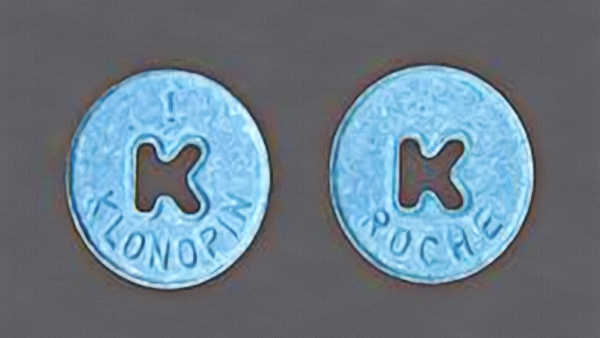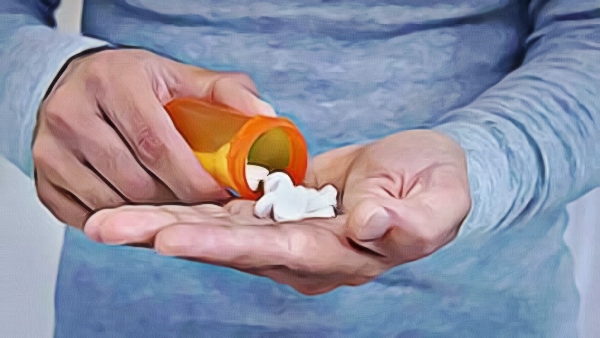A common reason why people end up developing substance use disorder is due to medical treatments. Some potent medicine can have highly addictive properties, affecting a patient’s dependence on their prescription medication.
Klonopin is a brand name for a type of clonazepam. It’s a benzodiazepine medication that slows down brain activity to make its user feel relaxed. Its primary purpose was to relieve the symptoms of anxiety, epilepsy, seizures, and panic attacks with its strong soothing effects. However, its long-term use can make a person dependent on the drug over time.
What is Klonopin?
Klonopin’s medical function is to enhance the activity of neurotransmitters in your brain. It slows down brain activity to calm the user’s mind. Doctors prescribe it to treat different conditions, from insomnia to panic attacks. A patient usually takes it in tablet form three times a day.

You may recognize it in slang terms from news reports as k-pins, benzos, or downers. Although Klonopin addiction isn’t as dangerously addictive, such as methamphetamine or cocaine, a person can develop a habit of abusing Klonopin and other benzodiazepine variants over time.
People tend to mix Klonopin with other drugs to take advantage of its ability to intensify sensations and highs from alcohol or opioids. It makes them feel an intoxicating high that slows their heart rate and even produces hallucinations. These physical and cognitive effects can result in comas or death.
Klonopin side effects
Although Klonopin’s main function is to treat severe medical conditions, you can still experience potential side effects even if you normally use it. However, these are more likely to happen if you use it beyond the prescribed doses. Since it depresses your central nervous system, you will experience a euphoric high, followed by bringing you to an intoxicated state.
Someone who abuses Klonopin will experience different physical and mental ailments. For physical conditions, you may experience numbing or reduced libido together with dizziness or vertigo. For mental states, you may have impaired cognition or confusion on doing different tasks. It also slows your reaction time and impairs your judgment, similar to being intoxicated.
Klonopin overdose
Overdosing in Klonopin can cause you to be in a state of extreme drowsiness, causing you to have a reduced attention span and difficulty with memory recall. It’s extremely dangerous to be in public places since you will struggle with handling your body functions and alertness to your surroundings.
People who abuse their usage of Klonopin take their high a step further by taking large doses. Since it targets the central nervous system, it can produce hallucinatory effects that intensify other drugs. It’s common for people with substance abuse disorder to take it with other drugs or alcohol to amplify their high.

The drawback of this temporary experience is that it can put your life at severe risk. As Klonopin slows down your body’s systems, you may experience respiratory failure or blacking out. This happens because your breathing and heart rates will reach a dangerously low level.
However, you can also experience opposite symptoms. There’s the potential of developing paradoxical reactions from Klonopin’s effects. Instead of feeling relaxed and intoxicated, you may enter into a state of heightened irritability, anxiety, and aggression. Over time, you may develop depression and panic attacks even without using the drug.
Klonopin withdrawal
Some people can become self-aware of their substance abuse disorder and try to quit their unhealthy habits. However, doing this on their own can cause them to handle the removal of the substance in their bodies improperly. Listed below are some withdrawal symptoms of Klonopin addiction:
- Physical changes (increased body temperature, sweating, and pulse rates)
- Involuntary tics (hand tremors to full-on seizures)
- Cognitive changes (anxiety, panic attacks, and hallucinations)
- General feeling of being unwell (sleeplessness, nausea, and vomiting)
The intensity of these withdrawal symptoms will vary, depending on several factors. A person’s frequency in using Klonopin and its dosage will be a major contributor to how long these symptoms will last. Also, if a person already has a pre-existing medical condition, it may further complicate their body’s response to the lack of Klonopin in the body.
Since your body has built a chemical dependence on Klonopin, it will demand to receive it even if the person already wants to quit. This is why it’s necessary to take the drug in smaller doses to prevent the withdrawal symptoms above.
How long does Klonopin stay in your system?
Like any form of potent medicine, Klonopin will have a set amount of time to remain in your system. Since it’s prescribed for severe medical conditions, it can stay in your body for weeks. Based on urine samples, it’s detectable for up to a month.
With its long half-life of over 20-50 hours, it will stay in your body much longer than other drugs. Keep in mind that these figures will vary from person to person. It will vary depending on these factors below:
- Age
- Gender
- Weight
- Frequency of use
- Amount used
What should I do if I have Klonopin addiction?
Anyone who wants to turn over a new leaf from their substance use addiction needs to be cautious about making harsh decisions. Although self-awareness is the first step in recognizing your condition, you should be mindful of the next steps you’ll take.
For starters, you shouldn’t stop using Klonopin, especially if it’s to treat your condition. If you started with using it as a prescription medication, it’s best to at least maintain the right dosage instead of not taking it abruptly. Keep in mind that your body follows automatic routines on a physical and chemical level. If its neurotransmitters can’t detect the chemicals it usually has, your body can develop adverse withdrawal symptoms. This is why it’s necessary to gradually cut down your drug use to prevent the effects of the withdrawal symptoms above.
Next, it’s important to notify someone you trust about your condition. Overcoming drug addiction isn’t something you should face on your own. If you’re not comfortable with being open about your situation to your friends or family, you can contact rehab centers to seek the help you need. These institutions can guide you through your recovery process and assist your adjustment to a healthier lifestyle.
However, you must still contact your relatives or loved ones if you plan to enter an inpatient program. Since you’ll go through an extensive regimen of individual and group recovery sessions for the next few weeks, you’ll need to notify anyone who may want to contact you.
Seeking help for drug addiction is never easy. However, it’s necessary to think clearly about your recovery process to ensure that you won’t go through a painful withdrawal period. Recovering from substance abuse disorder isn’t just a physical need but a mental need as well. It’s best to place yourself in an environment that can remedy both your body and mind’s condition.
People who develop an addiction to Klonopin need to undergo a detoxification program to ensure that they can safely remove the substance from their system. Anyone suffering from substance abuse will understand that no single addiction treatment will work with everyone. Thankfully, you can enroll in inpatient and outpatient programs you can choose from if you’re suffering from Klonopin addiction. Finding a reliable institution that can give you the help you need will lower your risk of relapsing into old habits.
